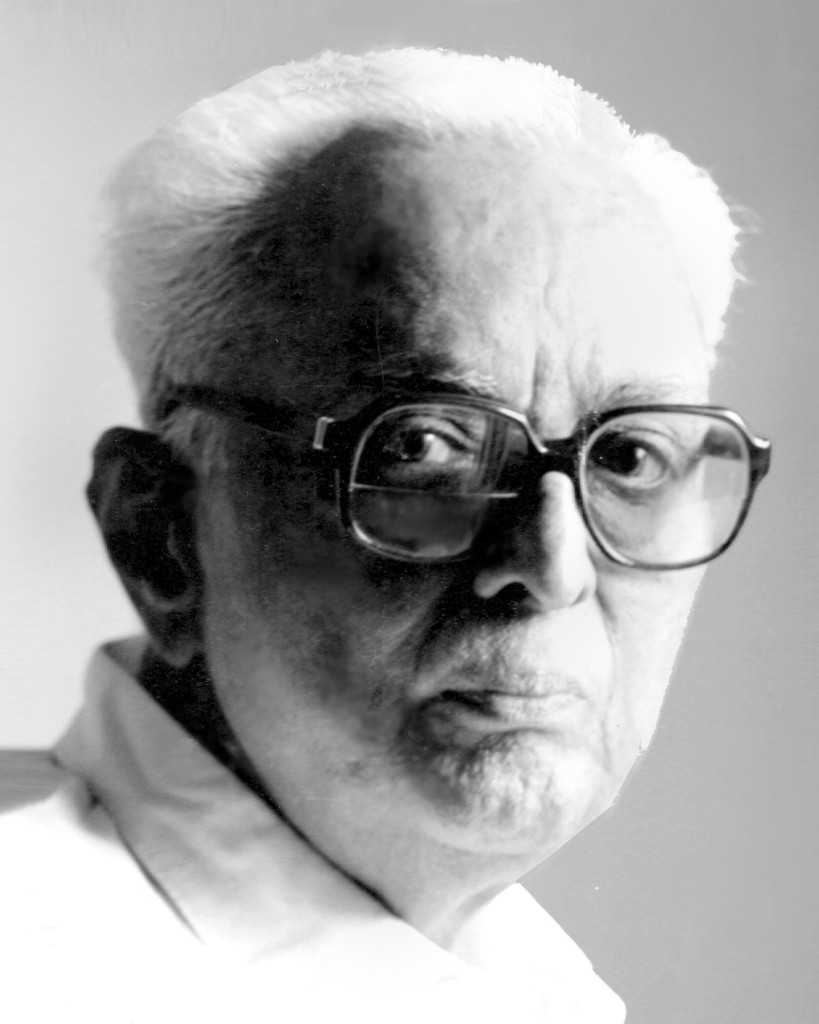
COMPOSER Calcutta KS Krishnamurti |
|
|||||||||||||
|
Calcutta K S Krishnamurti, who died on 16th May 1999 in Chennai, was a Carnatic musician who made an impression more as a guru than as a performer. He was also an insightful composer.
Born in December 1921, he belonged to Kallidaikurichi in Tirunelveli district, but acquired the prefix of Calcutta since he lived and worked in that city for many years. He was popularly known merely as KSK.
He had his school education at the Hindu High School in Triplicane, Madras. There one of this teachers was G V Narayanaswamy Iyer, father of G N Balasubramanyam. Perhaps it was this association that that kindled KSK's interest in music. Even then, his plan was to study mathematics, but he switched to music at the last moment when Tiger Varadachariar, then a key member of the faculty of the music college of Annamalai University, who had seen KSK before, persuaded him to do so.
KSK completed the Sangeeta Bhooshanam diploma course offered by the Annamalai University. He was privileged, like other students of the music college in Chidambaram those days, to have teachers like Tiger Varadachariar, Tanjavur Ponniah Pillai, Madurai Subramanya Iyer and Sattur Krishna Iyengar, and learn music in what really amounted to a collegiate gurukulam. Later he studied a further three years with Sattur Krishna Iyengar in Bangalore.
In the early nineteen fifties, the Carnatic music arena in Madras, in fact in virtually all areas of the South, was dominated by stalwarts who had captured the imagination of the listening public during the thirties and the forties. It was difficult for talented youngsters to compete with them for performing space. Possibly this was one of the factors that made KSK to migrate to Calcutta which he made his home for the next decade and a half. There he taught music to a number of boys and girls, of whom only a few had any intention of pursuing a career in music. But this contact was enough to arouse his creative instincts. He presented many thematic programmes based on the songs of great poets, setting them to music himself and featuring his students as performers. More importantly, he went beyond being a tunesmith to wear the vestments of a vaggeyakara and compose both the dhatu and matu, initially for Varnams and later for some other song forms as well. Altogether, KSK's stay in Calcutta could be deemed fruitful, though he himself was less than fully satisfied with his musical there for, at bottom he wanted to succeed as a concert artiste as well.
He told an interviewer not too long ago that he did not have a successful concert career because he stayed in Calcutta in the prime of his life. During that time he did get some performance opportunities in the South, but generally the Sabhas concerned found the financial burden arising from the travel costs unacceptable. Even later, he did not get many opportunities to give performances. 'After being associated with stalwarts like Sabhesa Iyer, Tiger, Ponniah Pillai and Muthaiah Bhagavatar,' he explained' could never ask anyone else for a favour. I though this was a very demeaning thing for me to do, but I don't think I have been haughty' In the event, I do have pent-up emotions about not performing enough.'
Back in Madras, his career continued on the same lines, with teaching rather than concert performances as the mainline. During the seventies, he was mostly in the shadows, collaborating quietly with Lalgudi Jayaraman for some years. He entered public life, however, when he was conscripted to teach music at the Rishi Valley School in Madanapalle, Andhra Pradesh.
In the eighties he served Kala Peetham, a private institution offering courses in music and dance., Later, private tutoring picked up momentum, with many youngsters who had entered the concert arena seeking his help in expanding their repertoire and finding in him a source of expert guidance on musical aspects as well. His own son K K Ravi, a young musician who had trained under Lalgudi Jayaraman as a student in residence for 12 years, was active in the newly established Youth Association for Classical Music (YACM) and this possibly led other young musicians close to him to discover the guru in unpretentious KSK.
KSK drew young musicians again to the lecture - demonstrations he was asked to present by various organizations, especially during the annual 'season'. He also conducted what are called 'contact classes' for students enrolled in the correspondence course in music organized by the Department of Music of the University of Madras.
KSK became associated with Sruti magazine as Senior Editor soon after the tragic demise of K K Ravi, his only son. This association, which continued till his own demise, and the key role he played in a study of the music of G N Balasubramanyam, undertaken by the Sruti Foundation’s Special Project’s Division, helped to steady his life after he was left completely shaken by his son's sudden death in a far-off land. KSK's disciples adored him and some officials of the Music Academy of Chennai, aware of his credentials, tapped his talents, although not in any major way. They as well paved the way for his admission into the Academy's Advisory Committee.
The first break for KSK, in terms of public recognition, came when the Sruti Foundation took the intiative to organize a felicitation function at which he was conferred, on behalf of other musicians and rasikas at large, the title of Sangeeta Kala Nipuna. This was on the second day of the two-day public presentation on the music of GNB, in December 1992.
Wider recognition followed. The Narada Gana Sabha and Kapali Fine Arts honoured him. And, at the end of the 1998 annual conference, the Music Academy conferred on him the title of Sangeeta Kala Acharya, most fitting considering that KSK's true vocation was as a teacher.
KSK's health was a matter for perennial concern. He was in and out of hospital for several years. But he soldiered on nevertheless. He said he wanted to be active as a teacher until he received the final call. And he was - he conducted classes even the day before he was taken to the hospital where he breathed his last after hovering
about a week in the twilight zone between life and after-life.
Lalgudi on KSK
Lalgudi G Jayaraman spoke about KSK while felicitating him on the occasion when he was given the title of Sangeeta Kala Nipuna. The following has been adapted from his remarks:
Calcutta K S Krishnamurti devoted his life entirely to the cause of music, playing a number of roles - musician of competence, musicologist, research scholar, teacher, composer and critic.
He had listened with discernment to the music of the great musicians in the past and adopted in his own musical nuances.
He had exchanged ideas and observations on Carnatic music with GNB whom he knew intimately.
A research-minded musician, he had studied many works on music with care.
He had considerable knowledge of the grammar of music.
He had noteworthy ability to analyse music and comment on it knowledgeably.
Possessed of insightful swara gnana, he was expert in setting others songs to music, writing notation and also composing both lyrics and music on his own. His compositions include Varna-s with built-in graha bheda, as well as kriti-s.
He was well acquainted with Hindustani raga-s and had successfully composed music for devotional songs (bhajan-s)
|
||||||||||||||




